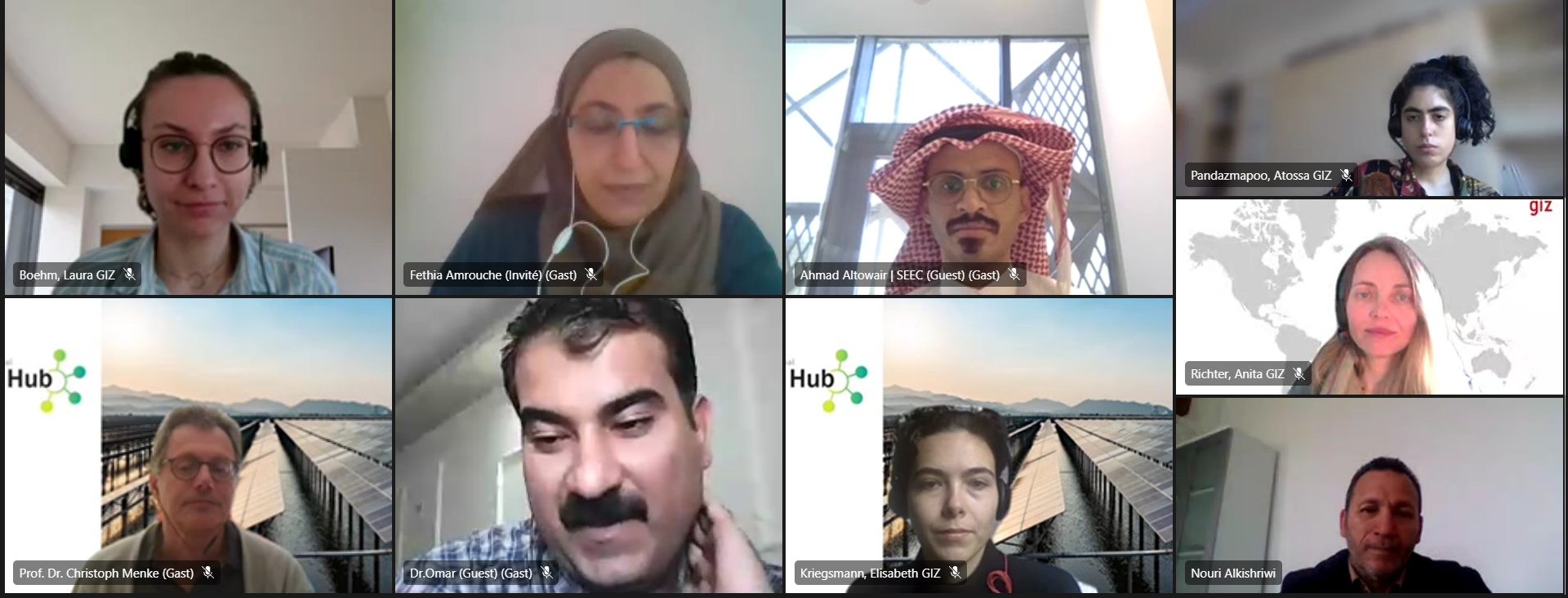Published on May 4th, 2022
Transition towards renewable energy systems gains momentum in the Arab Region
In 2013, the League of Arab States adopted its Pan Arab Renewable Energy Strategy 2030. The strategy includes an action roadmap to transform the energy sector. It identifies the improvement of institutional frameworks and grid infrastructure, as well as the attraction of finance as indispensable for the future of the sector. At the same time, the strategy aims to upscale the renewable energy capacity in the Arab League member states. Over the last years, hydrogen has emerged as a topic that can accompany these plans and could be included in the countries’ energy strategies.
Currently, the region is quite diverse in terms of energy supply and demand. Some countries export oil and gas, while others import them. While most countries can guarantee access to energy for all inhabitants, other countries still face challenges in providing energy access to all.
Strong conditions for renewables in the region
However, in the mid- to long-term, PtX and green hydrogen present a great opportunity for this region. Currently, large oil and gas reserves have yet to be exploited, but in the long-term, the promising conditions for renewables (and its oversupply) are particularly interesting for diversifying the economy.
With its sunny climate and its windy on-shore and off-shore areas, the region offers ideal conditions to produce PtX fuels and feedstocks. Particularly countries with favourable renewable energy conditions benefit from low energy production costs, which also imply lower levelised costs of hydrogen production. At the same time, short distances to the European demand market decrease transportation costs, especially for countries with existing access to pipeline corridors.
Identifying potentials and next steps to promote PtX production
From March 8th to March 10th, the PtX Hub Berlin organised a training on Renewable PtX for decision-makers from across the Arab Region, bringing together participants from eleven member states of the League of Arab States. The training was jointly prepared with the project “DIAPOL-CE Policy dialogue and knowledge management for low emission development strategies” implemented by the Deutsche Gesellschaft für Internationale Zusammenarbeit (GIZ) on behalf of the German Federal Ministry for the Environment, Nature Conservation, Nuclear Safety and Consumer Protection (BMUV) and the Energy Department of the League of Arab States.
The first two training days covered an in-depth overview of Power-to-X across the whole value chain – from production to transport to framework conditions and environmental considerations.
On the third and final day, the workshop participants received guidance on how to adapt the previously obtained knowledge to discuss potentials for PtX in their own countries as well as options for regional cooperation. This included deep dive sessions into the country conditions of Tunisia, which is currently preparing its hydrogen strategy, an overview of the energy plans of the Gulf Countries and a presentation from the League of Arab States Energy Department underlining the need for regional cooperation in the energy sector.
The way forward
Agreeing on the enormous potential for green hydrogen in the region, the participants nonetheless identified challenges laying ahead. One crucial step is to start drafting legal frameworks, which will enable a mid- to long-term transition of the energy sector and provide investment security. Building up renewable energy capacities that in addition to the countries’ current production is key. Furthermore, a roadmap identifying use cases (e.g. industrial sector, steel, ammonia), domestic and international market potentials and ensuring alignment of PtX development with national energy demand and capacities will be crucial to promote a quick update of PtX in the region.
Learn more about the Renewable PtX Trainings by the PtX Hub here.
